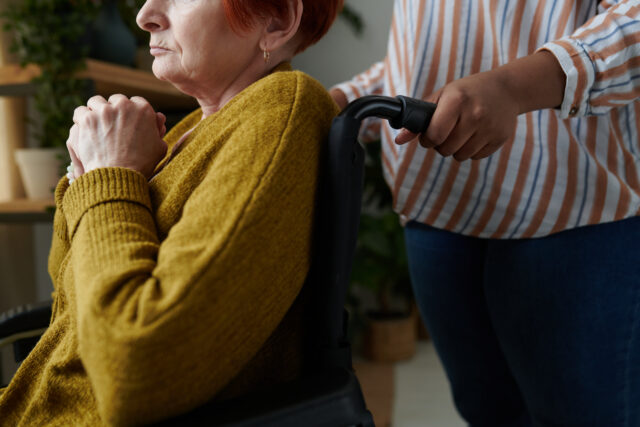
Fraud Against Elderly Documented
Chilling. That sums up a documentary about financial fraud against elderly people premiering tomorrow at the Quad Cinema on 13th Street in Manhattan.
“Last Will and Embezzlement” is about fraudsters who seek out vulnerable elderly people suffering from cognitive decline for no other purpose than to exploit their trust and steal their money. It’s not uncommon for these con men and women to be family.
By first-time producers Pamela Glasner and Deborah Louise Robinson, the film would’ve benefitted from more reporting and more focus – they try to do too much when they get into court systems and solutions. But the film does what journalism does best: It finds people willing to tell personal gripping stories – not easy to do – and gives them a voice.
- Mickey Rooney, 91, relived his searing emotional pain on screen, as he recounted how his own nephew “swindled” his money years ago.
- An elderly woman with Alzheimer’s was persuaded by a mortgage broker to take out a complex reverse mortgage, which resulted in foreclosure on her home and a legal battle waged by her children. “My mother was incapable of understanding any of this,” her daughter said.
- Documentary producer Pamela Glasner said that her father, a veteran with dementia, was persuaded by a complete stranger to sign over power of attorney. He took her father’s savings, his Florida home and his personal belongings. “As far as I know, this man walked into the nursing home and said, ‘Here, sign this,’” Glasner said. “The next thing I know this man has control of my dad’s money.”
The experts who appear in the film to provide framing and context explain that the mental impairment that can come with aging makes the elderly extremely vulnerable to people who win their trust by comforting them, easing their loneliness, or breaking through the isolation they feel. Financial crimes against this silent population are only expected to rise as baby boomers age.
“Last Will and Embezzlement” slams home why we should all care about this societal issue.
To recognize financial fraud or learn more about it, read my previous blog post or a brief I wrote for the Center for Financial Security here at Boston College.
Comments are closed.







Interesting stuff here, particularly the bit about scammers using the reverse mortgage as the vehicle. I’ve been in the mortgage business for 12 years, and while I don’t specialize in “reverse,” I do know that once you settle into the new reverse loan, there would have been no monthly payments and the borrower can never “out live” their home. That being said, I’m guessing that the only way they could have been foreclosed on would be if they somehow did not pay their real estate taxes. At any rate, this looks like an intriguing documentary and I look forward to seeing it.
Great stuff, Cheers,
Joe
I have spent most of the last year in legal battle to save my mother. My father is still stuck and I don’t know if I can save him. I am still in process to see if there is anything that can be done before it is too late for him.
So glad to see someone bringing this into the forefront for people to really see. Everyone who heard my story always just said that it would make a great book, but people would think it fiction because family does not do that to their parents. They do! And you are bringing it into the limelight for everyone to see. THANK YOU. I hope that I can see the movie somewhere in my area.
I think that this documentary is a great idea and look forward to viewing it. I hope that it will be shown nationwide and available for training or education. As an APS investigator, Fin. Abuse/Exploitation is the most prevalent form of abuse or neglect that I see and it is on the rise. Unfortunately, many of these cases go unprosecuted in the court system. When a perpetrator has everything to gain and nothing to lose, more people will continue to become victims. It would be good for taxpayers to be made aware that government programs end up funding services for these vulnerable and elderly adults who probably had funds to privately pay before they were exploited.